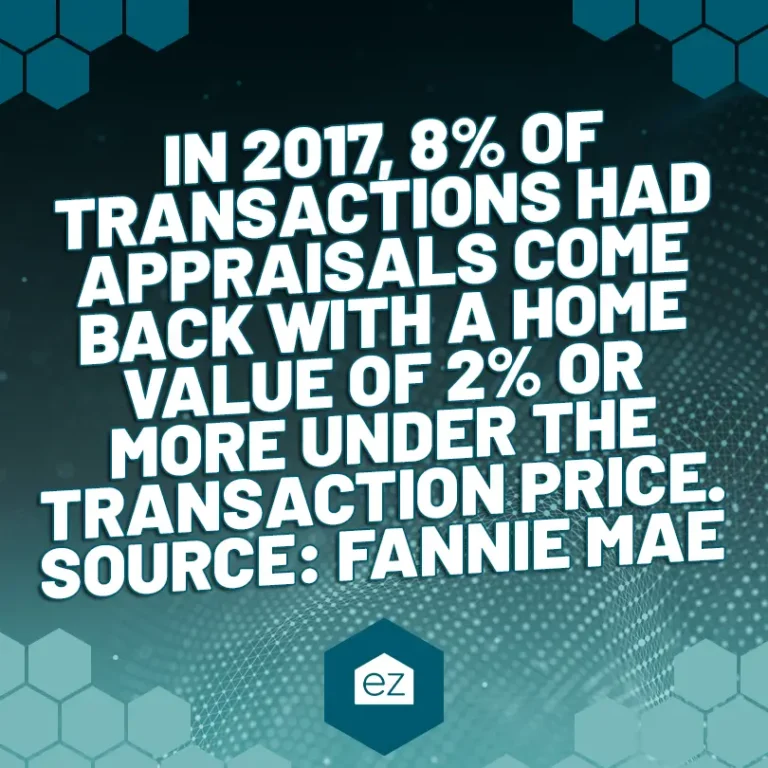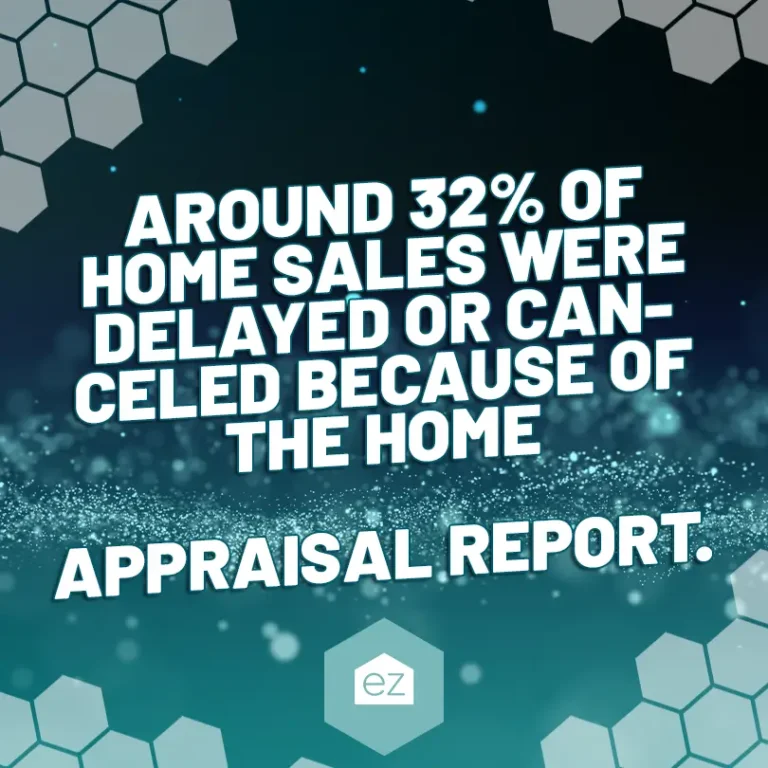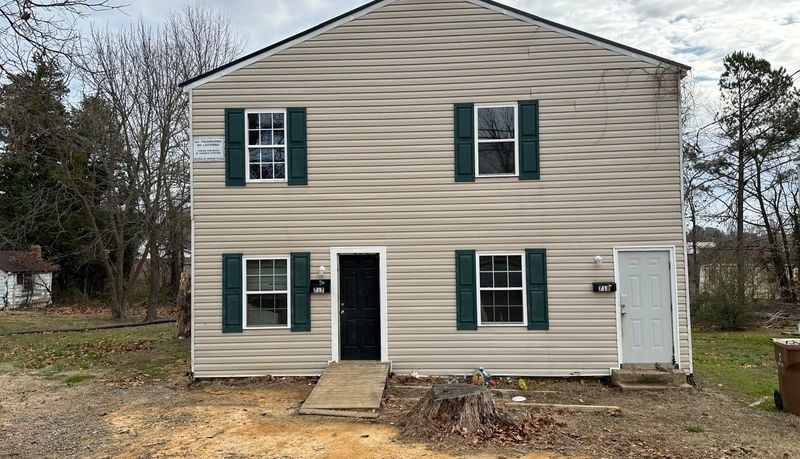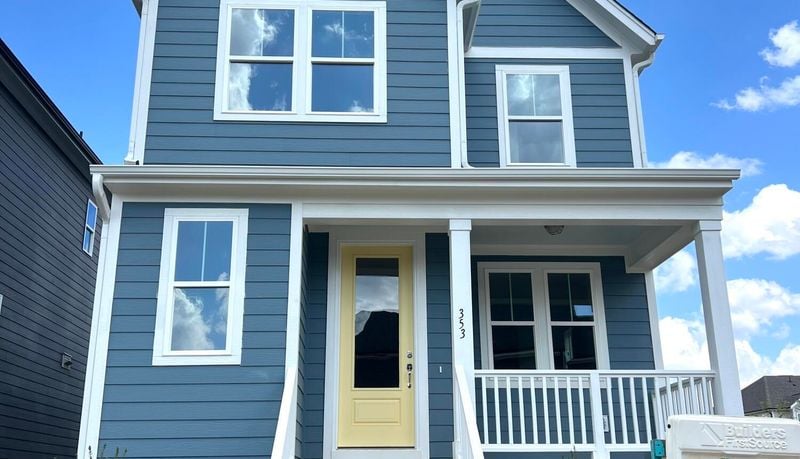Home Appraisal Challenges and How to Overcome Them
You’ve put down an offer for a home you love, but then there’s bad news from the mortgage lender: they won’t lend you all you requested because the home appraisal came in under the agreed-upon purchase price. Now, what do you do?
Most of the time, the appraisal goes through without a glitch. But it does happen– 8% of transactions had appraisals come back with a home value of 2% or more under the transaction price. That was from Fannie Mae back in 2017–with today’s post-pandemic-era changing market, that figure is likely much different.
When the home appraisal comes in lower than expected, it causes challenges for the buyers and sellers. Here’s what can be done to prevent and overcome home appraisal challenges.
How Does a Home Appraisal Work?
When buying or selling a home, the appraisal process is a crucial step that can make or break a deal. An appraisal is an unbiased assessment of a property’s value conducted by a third-party professional appraiser. Mortgage lenders use this value to determine how much they are willing to lend for the home’s purchase.
A home appraisal assesses various factors, such as the location, size, and condition of the property, to determine its market value. The appraiser will also consider recent sales of similar properties in the area, plus any upgrades or renovations done to the home. The final appraisal report includes a detailed explanation of how the appraiser arrived at their estimate.

Why Does a Home Appraisal Sometimes Come in Under or Over the Expected Value?
Several reasons cause a home appraisal to come in under or over the expected value.
In some cases, market conditions may have changed since the house was listed, resulting in a lower-than-expected appraisal. The longer the home has been on the market, the more likely this can happen.
But that’s not the only reason for an undervalue. “Hot markets” see home prices accelerate faster than the backward-looking appraisal report. Remember, appraisers pull “comps,” which are recent sales, but when properties are being snapped up during in-demand markets, those sales figures can lag weeks behind. Appraisals below contract are more common in markets with overbidding situations, rising markets, and a lack of available recent comps.
Other times, discrepancies between the appraiser’s assessment and the seller’s perceived value of their property cause the differing amounts. This is often seen when sellers have an emotional attachment to their home and believe it is worth more than what the market indicates. Or, they could be using an erroneous source to come up with their perceived price, like the Zestimate, which is about 8% off nationwide. Local real estate experts are your best source of current market data and home value.
Remember, home appraisers rely on data as much as possible to arrive at a value decision, but sometimes that data is wrong. An error in the reported square footage or lot size can shift a home’s value by several thousand dollars. The data also may lack the complete picture of a recently renovated home or if a comparable home was in poor condition.
A “missed” comp could also impact a valuation. These closed sales weren’t available when the appraiser initially pulled their report. The recent home price would impact their understanding of local market demand and value.
How to Solve a Home Appraisal Discrepancy
If the appraisal comes in lower than expected, first address the discrepancy. Request a copy of the appraisal from the lender. Review the report carefully to find any possible errors or reasons for a low appraisal.
Sometimes, the reason is apparent, giving you a pathway to protest (see below). But in many cases, the lower home appraisal is justified given everything the appraiser can see about the market, home condition, and location.
Now, you and the seller must find a way forward. The choices are:
- Re-negotiate the purchase price. If the seller is willing to accept a lower price, you can still move forward with the deal. This may be an option in a buyer’s market but will likely not work in a seller’s market. Before 2017, 51% of under-value appraisals were solved by lowering the sale price.
- Bring additional cash to closing. If your lender won’t cover the difference between the appraised value and the purchase price, you can pay for it yourself. In this scenario, you would need to come up with the cash difference at closing.
- Walk away from the deal. If there is a contingency clause in your purchase agreement stating that the sale is contingent on the appraisal, you can walk away from the contract without any penalties. Around 32% of home sales were delayed or canceled because of the home appraisal report.
In some situations, it might be possible to combine re-negotiation and more cash to reach an agreement that keeps the transaction moving forward.

Protesting Your Home Appraisal
Sometimes, it’s clear upon review that the home appraisal report is wrong. Each state has its own process for appealing an appraisal, so research the specific guidelines in your area.
First, identify what caused the lower value. Erroneous data on the home or wrong comps–that can be remedied by requesting a re-value from the appraiser. Make sure to supply the documents that prove why their information was incorrect.
Getting a second opinion from another appraiser is another pathway. This may identify errors or omissions made by the initial appraiser. Just be aware that a second appraisal will cost you more money.
Always provide evidence and data to support your claim, such as recent comparable sales in the area or documentation of any significant upgrades or renovations done to the home. Just remember the recent kitchen renovation or finished basement may not add as much value to a home as you think.
Home appraisal bias
Bias is not common in today’s market, but it does still happen. Understanding how the process works and knowing your options can help mitigate its impact on a home sale.
Remember to research local regulations and seek professional guidance when you believe your home appraisal has been impacted by bias. With careful attention, you can overcome any discrepancies and successfully navigate through the home-buying process. So, don’t let an under-appraisal discourage your goals for your home purchase or sale.
Home Appraisal Challenges
Home appraisal challenges are not insurmountable. Remember, the goal is to reach a fair and accurate property valuation that satisfies both parties involved in the real estate transaction. Communicate openly and work together towards a mutually beneficial solution.
With proper preparation and knowledge, you can overcome any appraisal challenges that may come your way.
Start Your Home Search
Preston Guyton
Share this Post
Related Articles
Real Estate Tips
The Power of Follow-Up: Staying in Touch With Your Database
Real Estate Tips
How to Communicate Your Value As A Real Estate Agent
Real Estate Tips
10 Essential Steps to Hiring a Contractor
Real Estate Tips





